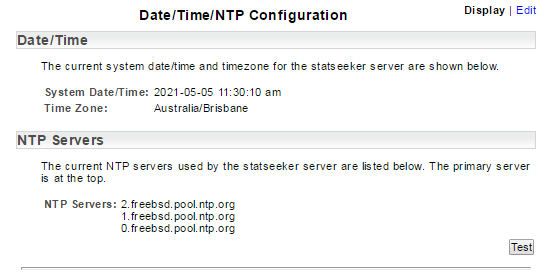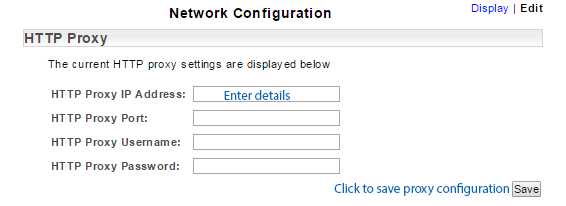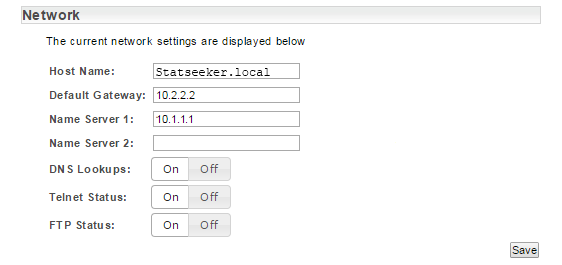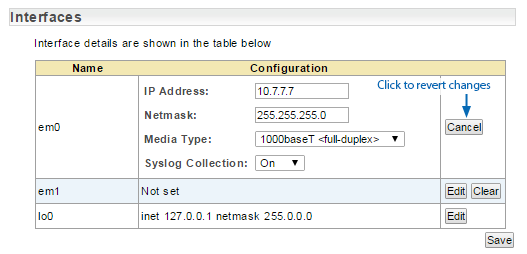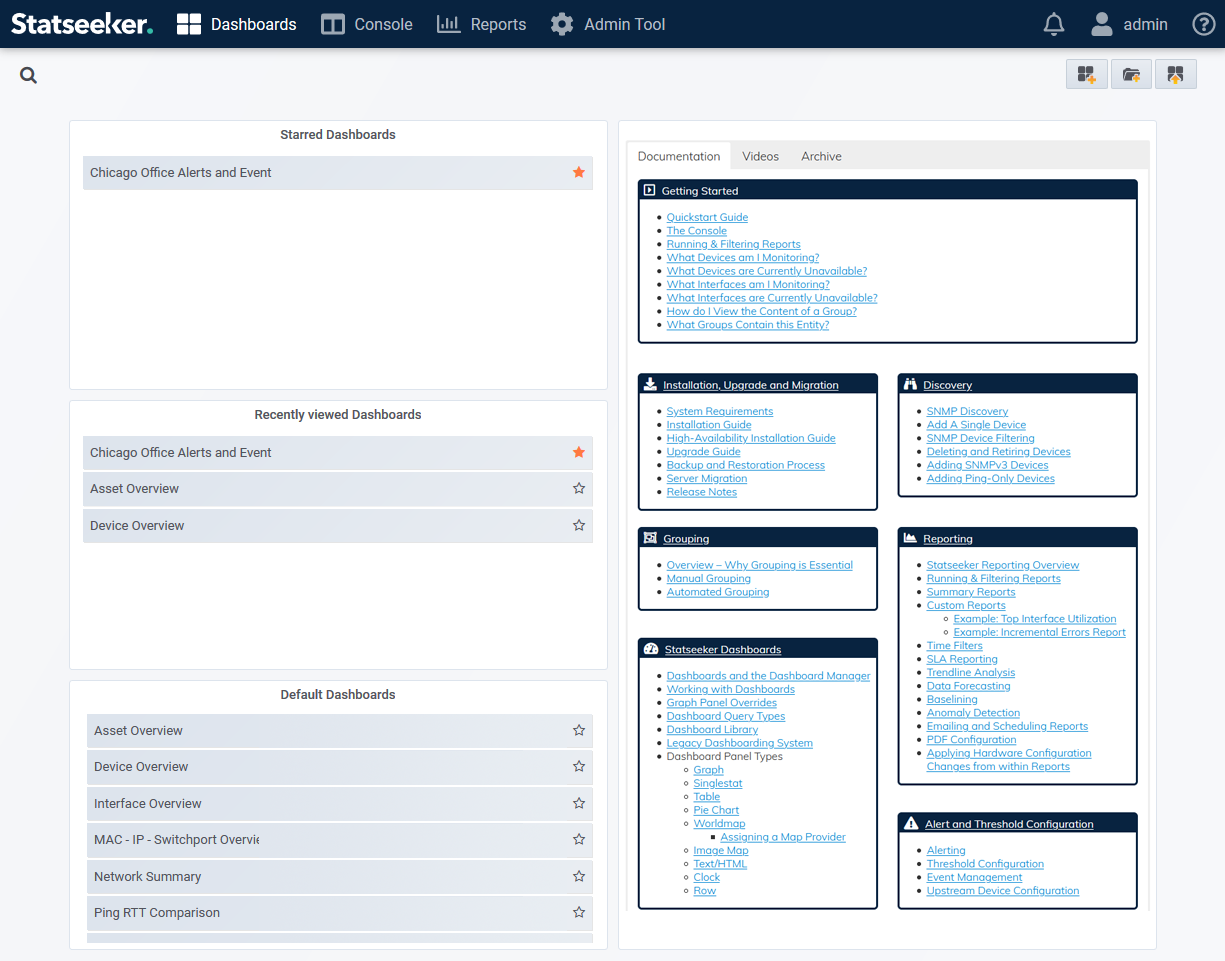*** Legacy Documentation for Statseeker v5.5.5 ***
Index
- Overview
- Important Notes
- Prerequisites
- Install Primary Server
- Install Secondary Server
- Web Installation Wizard
Overview
This document details the installation process for a Statseeker Version 5 High-Availability (HA) deployment.
- For a non-HA installation, see Statseeker Installation Guides
- Release Notes
Important Notes
Non-Synced Server Settings
Changes (being set or updated) to the following settings are not synced between primary and secondary servers. Any changes to the following must be manually duplicated on the secondary server:
- SSL certificates
- SSH keys and certificates
- NTP configuration
- Server timezone
- LDAP configuration
- Email configuration
- Web Server configuration
- User account password changes for the statseeker user
Unsupported Configurations
Statseeker does NOT support the following configurations for physical (non-VM) installations:
- Raid 5
- Raid 6
- SAN Drives
Installation Drive
- All data on the drive will be deleted during a new install
- See Version 5 System Requirements for more information on installation drive requirements
User Accounts
The installation process will create the following administrative system accounts:
- admin – the web user administrator account
- statseeker – the system user account used by the Statseeker application
- root – the superuser account in the backend operating system
You will be prompted to provide the root user password during the installation process. This password will become the default password for both the admin and statseeker accounts. This password can be changed after the installation process via:
- the command line ssadmin tool
- the web interface in the Administration Tool, see Admin Tool > Statseeker Administration > OS Configuration
Prerequisites
- A license key that is compatible with a Statseeker High-Availability installation, contact Customer Service to ensure that you have a suitable key
- A Statseeker High-Availability installation image/ISO, contact Customer Service for access to the installation image
System Requirements
Ensure that both prospective HA servers meet the Version 5 System Requirements. In addition, an HA installation requires that each server have a least two network interfaces and that are connected via a dedicated high-speed connection for the HA data sync link.
Installation Media
Contact your Regional Sales Manager for access to the Statseeker installation media (ISO/IMG) image file appropriate for your license. Once this file has been downloaded:
- CD/DVD: use 3rd party software to burn the ISO/IMG image file to disc
- USB: use 3rd party software to convert the USB and ISO/IMG to bootable drive
- VM: request the *.iso file from Statseeker support to ensure compatibility with your destination platform
Configuration Information
You will also need to provide, or define, the following information during the install process:
- The root user password for the server
- A host name for the server
- A domain name suffix for the server
- Static IP, Netmask and Default Gateway addresses for the server
- The IP address of your Domain Name Server
- The SNMP read access community string to your devices (routers, switches, servers, etc.)
Install Primary Server
CD/DVD/USB Installation
- Configure the BIOS time and time zone as desired
- Set the boot sequence:
- Installation media as first boot preference
- Installation destination drive as secondary boot preference
- Connect the server to your LAN as needed
- Insert installation media
- Boot the server
VM Installation
- Configure the VM
- See Statseeker System Requirements for details
- Disks should be thick-provisioned
- Network Interface Controller should be VMXNET3
- Mount the ISO
- Launch the VM
The FreeBSD welcome screen will be displayed.
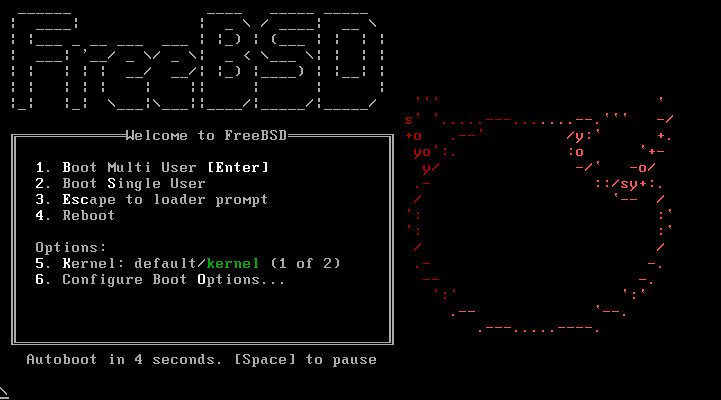
- Press Enter to continue with the installation
- Use the arrow keys to navigate through these dialogs
- Use the Tab key to move between the data-entry section and the OK/Cancel confirmation section
- Use the Enter to confirm the action in the confirmation section
The Statseeker Welcome screen is displayed.
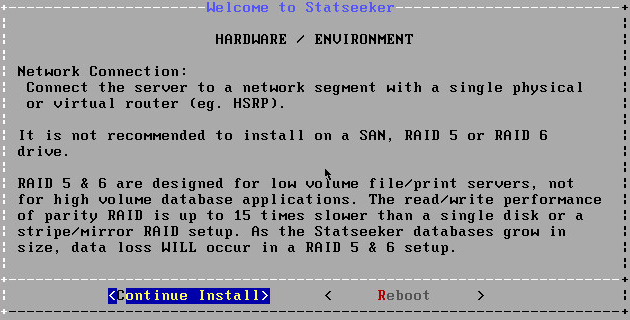
- Press Enter
The High-Availability Alert screen is displayed
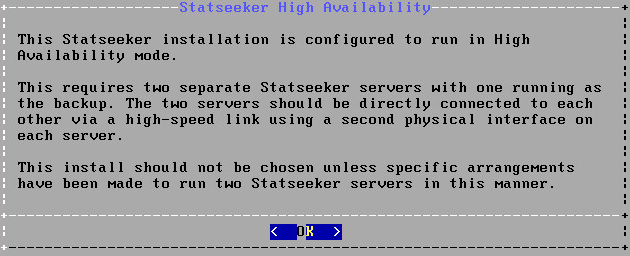
- Press Enter to continue with the installation
If you have multiple hard disks, the Installation Disk Selection screen is displayed.
- Select the disk you want to use, select OK and press Enter
The data wipe alert is displayed; continuing with the installation will delete all data on the hard disk.

- Press Enter to continue with the installation
The HA Role Selection screen is displayed

- Ensure that the Primary role is selected and hit Enter
The HA Config Summary screen is displayed, indicating that the primary server data-sync interface is to be configured.
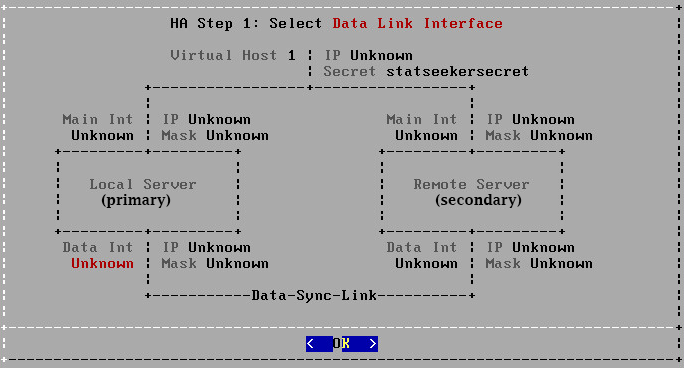
- Press Enter

- Select the interface to be used for the data-sync link
- Press Enter
The HA Config Summary screen is displayed, indicating that the primary server data-sync interface IP is to be configured.
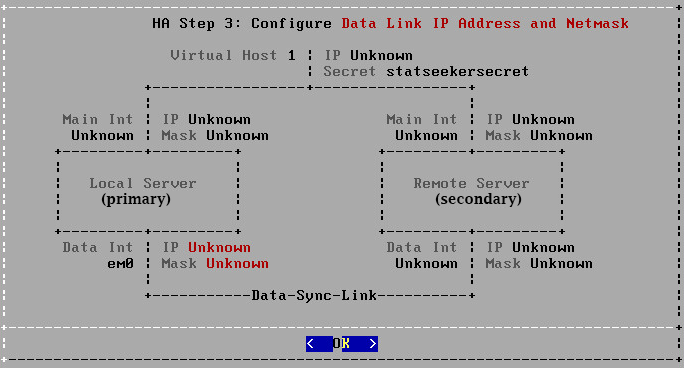
- Press Enter
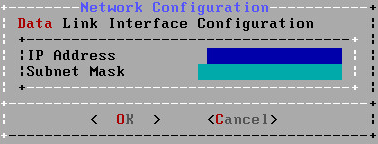
- Specify the IP and subnet mask to be used and press Enter
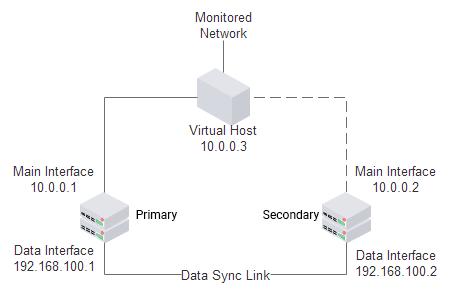
The HA Config Summary screen is displayed, indicating that the primary server main interface is to be configured.
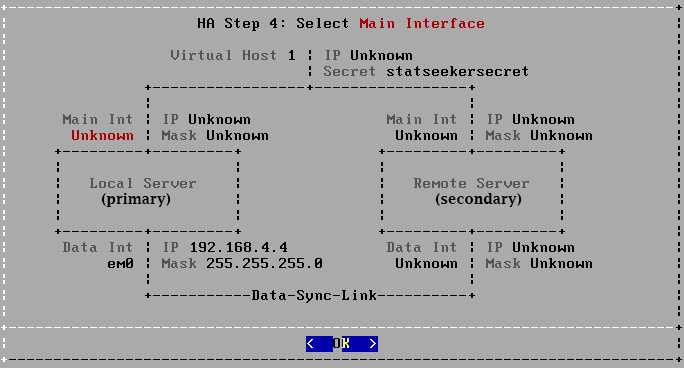
- Press Enter

- Select the interface to be used for the link to the rest of the network
- Press Enter
The HA Config Summary screen is displayed, indicating that the primary server main interface IP is to be configured.
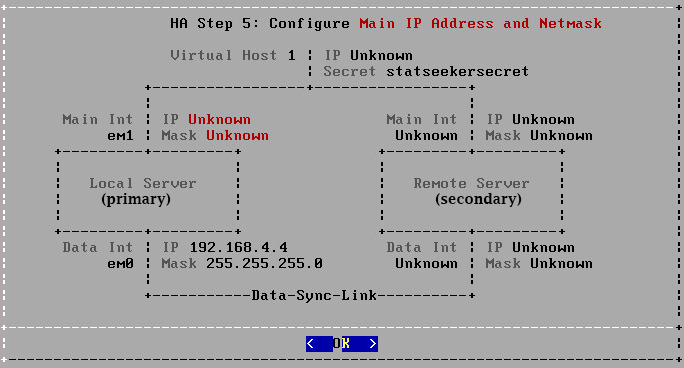
- Press Enter
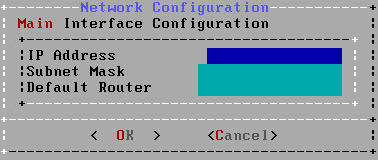
- Specify the IP and subnet mask to be used and press Enter
The HA Config Summary screen is displayed, indicating that the virtual host IP is to be configured.
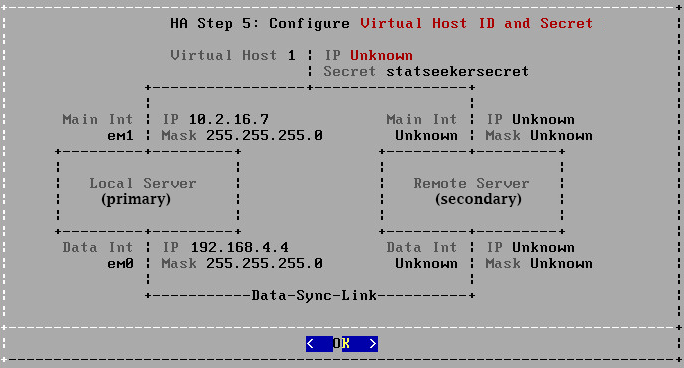
- Press Enter
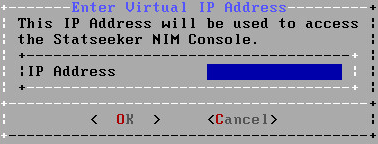
- Specify the IP to be used and press Enter
The HA Config Summary screen is displayed, indicating that the virtual host authentication string is to be configured.
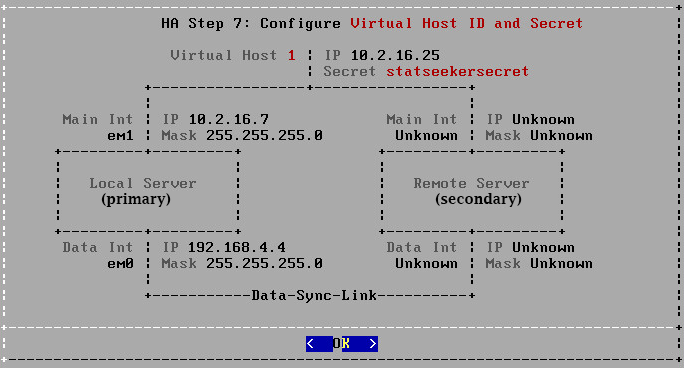
- Press Enter
- Specify the authentication string to be used and press Enter
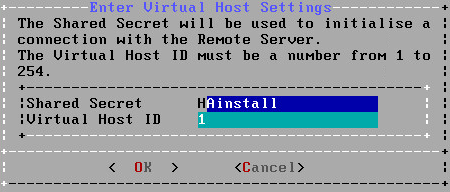
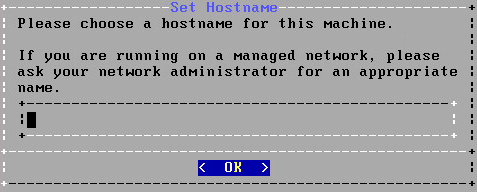
- Specify the hostname to be used for the primary server Enter

- Specify the domain and DNS servers to be used for the primary server and press Enter
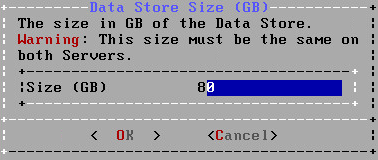
- Specify the data-store to be used and press Enter
Installation will continue.

The server time prompt is displayed.

- If you are certain that the CMOS clock is set to UTC, then select Yes, otherwise select No
- Select the time zone region
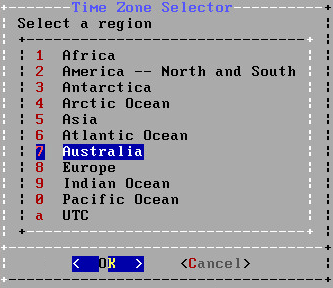
- Select the time zone
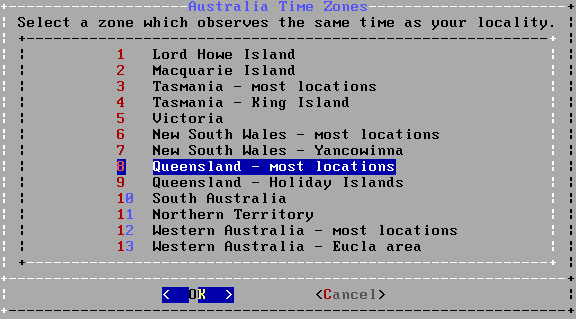
- Select Yes to confirm the time zone configuration

A prompt will be displayed asking you to set the password for the server root account.

- Enter the password and press Enter
- Repeat to confirm the password
Statseeker will now install all required packages and reboot.

Once the server has started to reboot you may remove the CD/DVD disc from the server drive. A login prompt will be displayed, indicating a successful install.
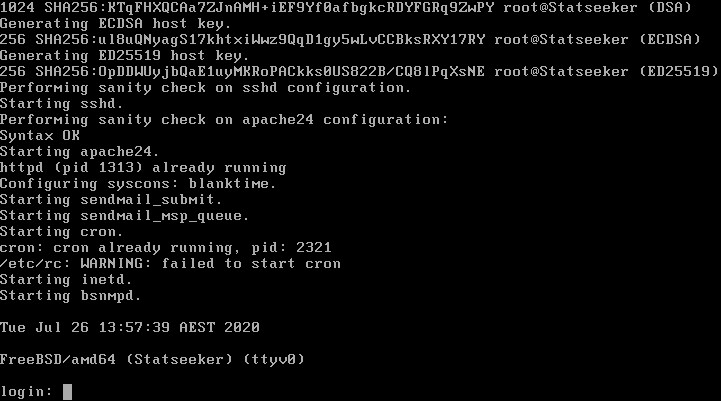
- Do not log in, rather move on to the HA Secondary server installation
Install Secondary Server
Begin the installation of the secondary server in exactly the same manner as the installation of the primary server.
The Statseeker Welcome screen is displayed.

- Press Enter
The High-Availability Alert screen is displayed

- Press Enter to continue with the installation
If you have multiple hard disks, the Installation Disk Selection screen is displayed.
- Select the disk you want to use, select OK and press Enter
The data wipe alert is displayed; continuing with the installation will delete all data on the hard disk.

- Press Enter to continue with the installation
The HA Role Selection screen is displayed

- Ensure that the Secondary role is selected and hit Enter
The HA Config Summary screen is displayed, indicating that the secondary server data-sync interface is to be configured.
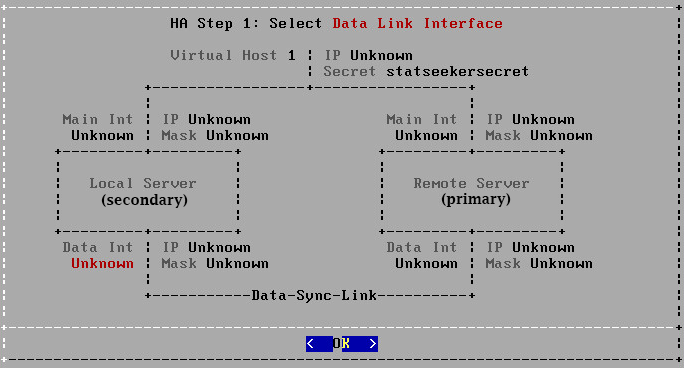
- Press Enter

- Select the interface to be used for the data-sync link
- Press Enter
The HA Config Summary screen is displayed, indicating that the IP of the primary server data-sync link interface is required.
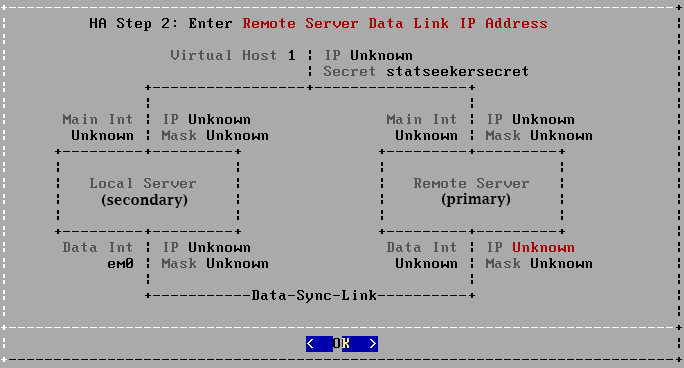
- Press Enter
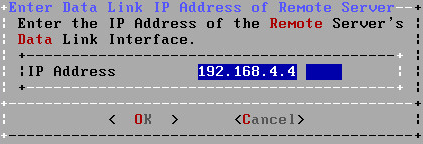
- Specify the IP address previously assigned to the interface used for the data-sync link on the primary server
- Press Enter
You will then be prompted for the password assigned during the primary server installation process.

- Enter the password for the root account on the primary server and press Enter
SSH keys will be exchanged for communication between the primary and secondary servers, then the installation process will test this link and pull configuration data from the primary server to assist with automatically configuring the secondary server. The HA Config Summary screen will be displayed detailing the automatic configuration assigned to the secondary server.
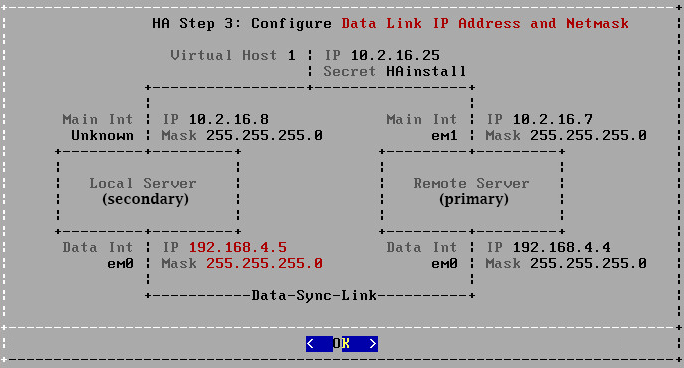
The installation process will proceed as per that used when configuring the primary server:
- The HA Config Summary screen will be displayed before each step, indicating the next setting to be configured
- The configuration screen will be displayed and will be pre-populated as per the automated configuration
- Step through these settings, editing the configurations if required and pressing Enter to confirm
Once the HA specific configuration options are complete the installation process will move on to the remainder of the secondary server configuration.

- Specify the hostname to be used for the secondary server Enter

- Specify the domain and DNS servers to be used for the salve server and press Enter

- Specify the data-store to be used and press Enter
Installation will continue.

The server time prompt is displayed.

- If you are certain that the CMOS clock is set to UTC, then select Yes, otherwise select No
- Select the time zone region

- Select the time zone

- Select Yes to confirm the time zone configuration

A prompt will be displayed asking you to set the password for the server root account.

- Enter the password and press Enter
- Repeat to confirm the password
Statseeker will now install all required packages and reboot.

Once the server has started to reboot you may remove the CD/DVD disc from the server drive. A login prompt will be displayed, indicating a successful install.

- Do not log in, rather move on to the Web Installation Wizard
Web Installation Wizard
Once Statseeker is installed on both servers you can access the web interface, to do this:
- Enter the IP address previously specified for the virtual host, in your browser address bar
You will then be prompted with a login screen.
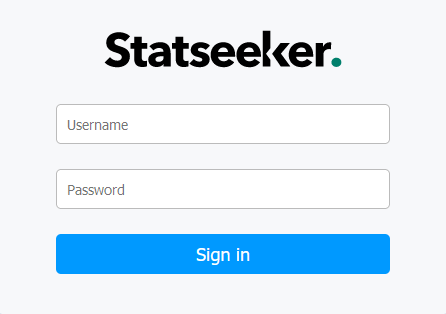
- Select Sign in with username/password
- User Name - admin
- Password - the root user account password as specified during installation
Once logged in to the web interface, you will be prompted with the Statseeker License configuration screen.
- Enter your Server ID and select Download a new Key
It may take a minute or two to obtain your license key.
- Select the checkbox to accept the Statseeker license
- Select Save to activate the license key
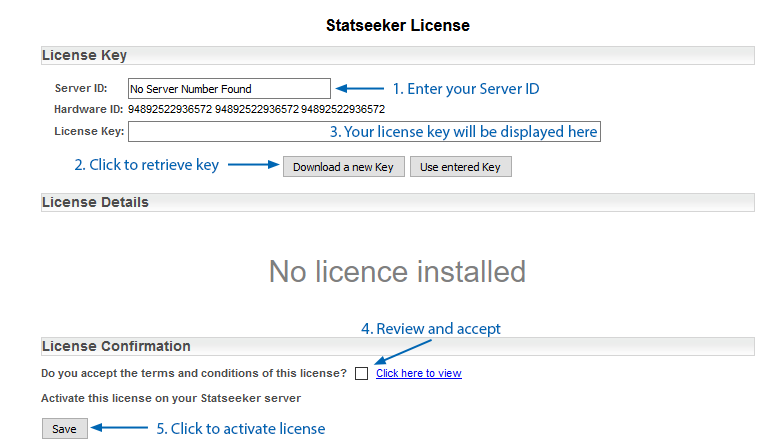
The screen will update to display the license details.
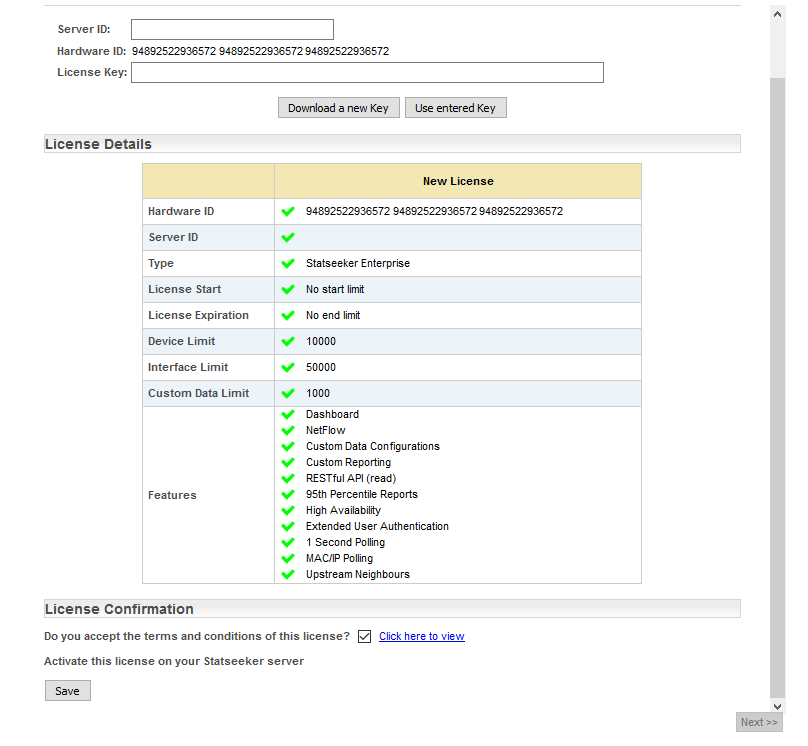
- Click Next
You will now be presented with the Server Summary screen, containing a range of details pertinent to your Statseeker installation.
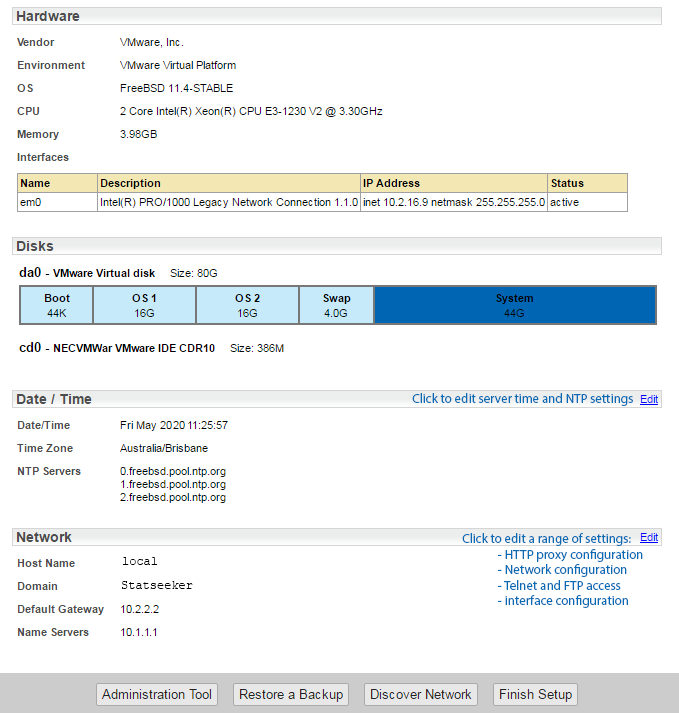
- SSL certificates
- SSH keys and certificates
- NTP configuration
- Server timezone
- LDAP configuration
- Email configuration
- Web Server configuration
- User account password changes for the statseeker user
Edit Server Date/Time
To edit the server date/time settings:
- Click the associated Edit link on the Server Summary page
- Use the calendar control to edit the date and/or time
- Use the drop-downs to modify the timezone for the server
- Click Save when done
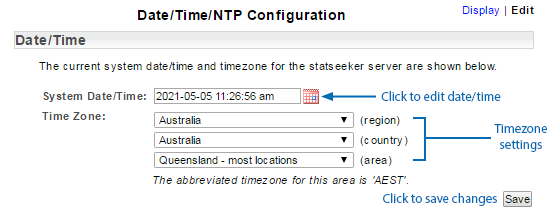
The configuration changes will be saved and the server will be restarted to apply those changes.
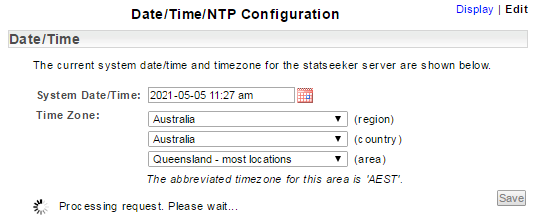

Once the changes have been applied you will be returned to the Date/Time/NTP Configuration screen (in Display mode) to confirm that the changes have been applied correctly.
Edit NTP Configuration
To edit the NTP server settings:
- Click the associated Edit link on the Server Summary page
- Enter the address of the NTP server to use
- Click the associated Delete button to remove unwanted NTP server entries
- Click Save when done
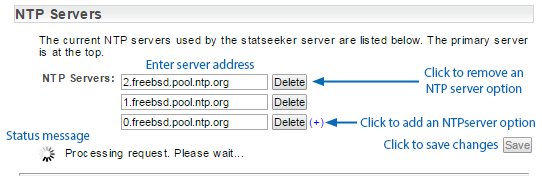
When you click Save Statseeker will attempt to contact the specified NTP servers and:
- Inform you if it is unable to receive a response from the NTP server, no changes have been applied at this point
- If it receives a valid response from the NTP server, apply the changes and return the Date/Time/NTP Configuration screen (in Display mode) and enable a Test button that can be used to confirm the validity of the current configuration.
Configure an HTTP Proxy Connection
To add or edit the HTTP proxy configuration:
- Click the Network > Edit link on the Server Summary page
- Enter the required proxy server details
- Click Save to apply the configuration
Edit the Network Configuration
To edit the existing network configuration:
- Click the Network > Edit link on the Server Summary page
- Enter the required details
- Click Save to apply the configuration
Edit Interface Configuration
To edit the existing network configuration:
- Click the associated Edit link on the Server Summary page
- Click Edit to reconfigure the interface, optionally click Clear to remove the current configuration before editing

- Enter the required details
- Click Save to apply the configuration
- Click Close to return to the Server Summary
Run Network Discovery
Statseeker's automated network discovery process will use the supplied configuration to contact all IP addresses in the defined ranges and retrieve configuration data on the associated devices at those addresses.
- Click Network Discovery
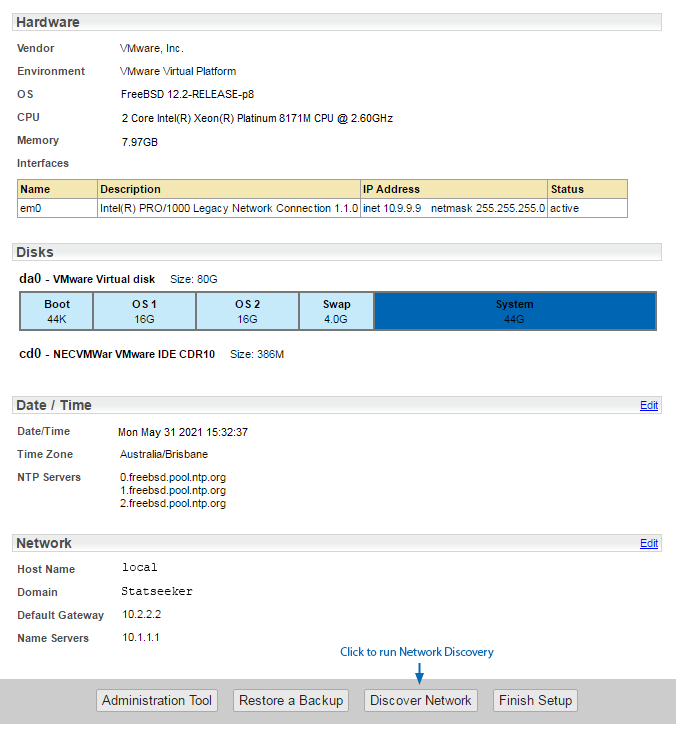
- Click Start Discovery

- Enter the SNMP Community Strings for the devices that you want Statseeker to discover. Multiple community strings may be specified, one per line.
- Define the Network Discovery Ranges that you wish Statseeker to query
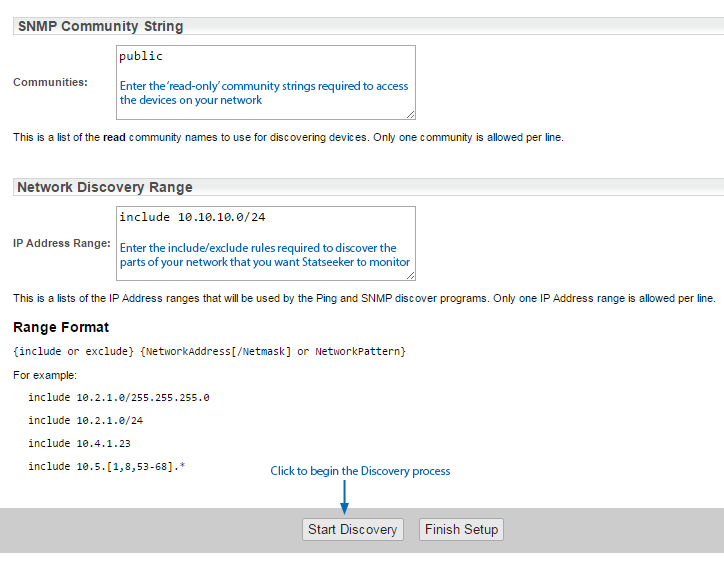
Once the discovery process is active and running, you will be presented with an in-product video highlighting the discovery process. There is a progress wheel in the bottom left-hand corner of the screen that will indicate when the discovery process is complete.
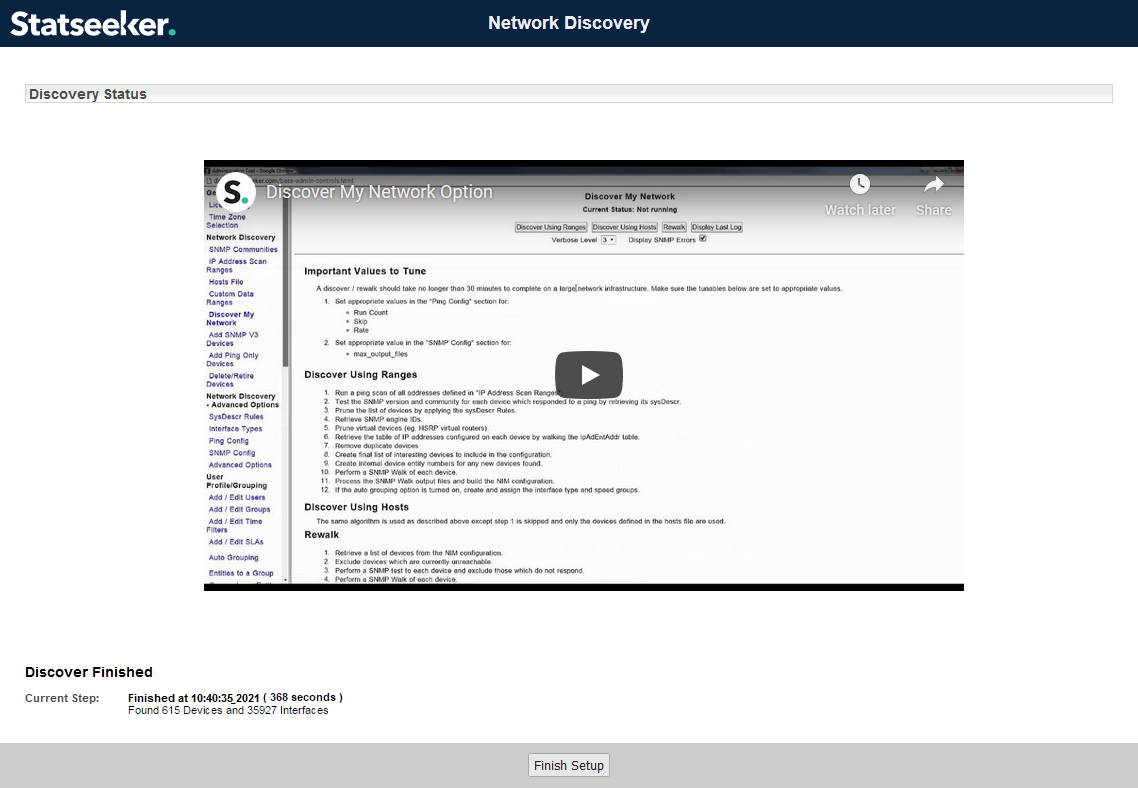
- Once the discovery process has completed, click Finish Setup
The Statseeker Dashboard Homepage will be displayed providing access to the default dashboards as well as a news panel detailing recent updates with links to associated documentation and videos. The main Statseeker Console and reporting panels are available from the main navigator.

